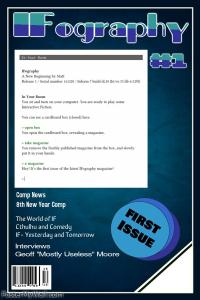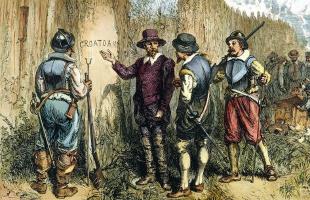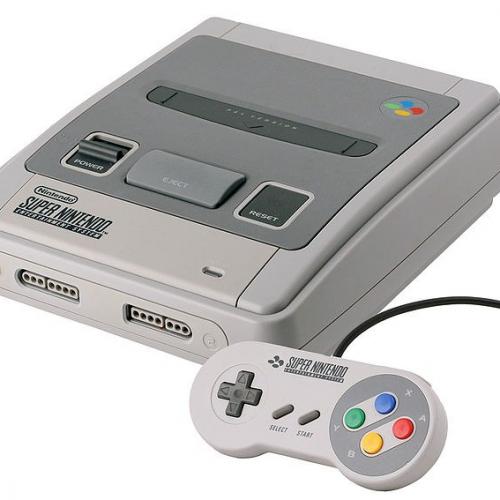Copy Link
Add to Bookmark
Report
CyberLaw 93 01

CyberLaw (tm) 1/93
I. NOWITHHOLDING OR BENEFITS, NO COPYRIGHT
A case recently decided by a federal appeals court illustrates traps
for unwary companies and programmers that could lead to the loss of
ownership in a computer program. Focusing upon works made for hire,
the U.S. Court of Appeals for the Second Circuit weighed heavily
against an employer the failure to provide a programmer with health,
unemployment or life insurance benefits or to withhold social
security, federal or state taxes from his pay. The Second Circuit
ruled such failure to be a virtual admission that the programmer was
an independent contractor entitled to be considered the author and
owner of the program he wrote during the course of his employment.
(__Aymes v. Bonelli__, No. 92-7098 (2d Cir. December 2, 1992).)
II. AYMES GOES TO WORK
In 1980, Aymes was a graduate engineering student at Cornell
University. That summer, he was hired to work as a computer
programmer by Jonathan Bonelli, president and chief executive
officer of a business ("Island") operating a chain of retail stores
selling swimming pools and related supplies. Aymes was hired to
make modifications to Island's existing software, and to adapt
software to run on its new computer system. Working between 10 and
30 hours a week at Island, Aymes was paid $25/hour. At the end of
the summer, Aymes continued to work for Island on a part-time basis,
writing new programs and maintaining old programs.
Aymes received his graduate degree from Cornell in 1981. In the
summer of 1981, he returned to Island on a full-time basis. From
August 1980 through September 1981, Aymes was paid about $25,000 by
Island. According to Island's attorneys, Aymes left Island after it
purchased a new computer system without first consulting him; he
claimed it was a bad purchase.
In January 1982, Aymes was rehired by Island, at a rate of $35/hour.
He continued the process of converting programs for Island's new
system, and also wrote programs for the new system. He was asked to
prepare training programs for the system, for which he was to
receive a flat fee of $14,000. For preparing communication programs
and other programs, he was to be paid his hourly rate. Aymes left
Island in September 1982, when his hours were cut. For his work
from January 1982 through July 1982, Aymes was paid $28,760. When
Aymes left Island, he was owed $14,560 in wages.
Aymes demanded the unpaid money from Island, and also requested
payment for multisite use of a series of programs called "CSLAB,"
created during Aymes's employment by Island. (According to Aymes,
CSLAB stands for Clifford Scott Aymes LIBrary.) Island, however,
refused to pay Aymes until he signed a release of rights to CSLAB.
III. AYMES FILES SUIT
In March 1985, Aymes registered CSLAB in his own name with the
Copyright Office. (According to Island's attorneys, Aymes did not
have complete copies of CSLAB source or object code, and obtained
the computer printouts for the registration from garbage dumpsters
at Island's facilities.) On March 21, 1986, Aymes filed suit
against Bonelli (d.b.a Island Swimming Sales, Inc. and Island
Recreational) for copyright infringement, unfair trade practices and
competition, among other things.
In September 1991, following a bench trial on the copyright
infringement claims, a federal district court held that Aymes was an
employee of Island for purposes of applying the "work for hire"
doctrine, and, therefore, Aymes could not claim any copyright
ownership in CSLAB. (__Aymes v. Bonelli__, 23 U.S.P.Q.2d 1317
(S.D.N.Y. 1991).) Aymes responded by filing an appeal.
IV. THE WORK FOR HIRE DOCTRINE
Under the Copyright Act, copyright ownership initially vests in the
author or authors of a work, such as a computer program. In the
case of a "work made for hire," however, the result may be
different:
"In the case of a work made for hire, the employer or other person
for whom the work was prepared is considered the author ...., and,
unless the parties have expressly agreed otherwise in a written
instrument signed by them, owns all of the rights comprised in the
copyright." 17 U.S.C. Section 201(b).
The Copyright Act defines a "work made for hire" as:
"(1) [A] work prepared by an employee within the scope of his or her
employment; or (2) a work specially ordered or commissioned for use
..., if the parties expressly agree in a written instrument signed
by them that the work shall be considered a work made for hire." 17
U.S.C. Section 101.
The Copyright Act does not define the terms "employee" or
employment." In 1988, the United States Supreme Court set out a
list of factors to be considered in determining whether a work was
prepared by an employee or an independent contractor. Noting that
no single factor is determinative, the Supreme Court stated that:
"In determining whether a hired party is an employee ..., we consider
the hiring party's right to control the manner and means by which
the product is accomplished. Among the other factors relevant to
this inquiry are the skill required; the source of the
instrumentalities and tools; the location of the work; the duration
of the relationship between the parties; whether the hiring party
has the right to assign additional projects to the hired party; the
extent of the hired party's discretion over when and how long to
work; the method of payment; the hired party's role in hiring and
paying assistants; whether the work is part of the regular business
of the hiring party; whether the hiring party is in business; the
provision of employee benefits; and the tax treatment of the hired
party." (__Community for Creative Non-Violence v. Reid__, 490 U.S.
730, 751-52 (1989).)
In the __Aymes__ action, the district court examined all of the above
factors and determined that "while Mr. Aymes may not have been an
employee in the classic sense, it is clear he performed [his] work
under the direction and supervision of Mr. Bonelli and that he
should be considered an employee for the purposes of applying the
work for hire doctrine." Among other things, the district court
found that: the skill required was "that which one would normally
expect to find in a person trained in computer science. ...[I]t
required no peculiar expertise of creative genius"; and while
Island's failure to withhold taxes or to pay benefits and the fact
that it sometimes paid Aymes in cash "might lend some support to the
idea that [Aymes] was not an employee, this appears more a case
where someone who should be rightly classified as an employee is
being allowed to work 'off the books.'"
V. A RULING AGAINST THE EMPLOYER
Reversing the district court, the Second Circuit observed that "the
__Reid__ test can be easily misapplied, since it consists merely of
a list of possible considerations that may or may not be relevant in
a given case. ...The factors should not merely be tallied but
should be weighed according to their significance in the case."
In its application of the __Reid__ test, the Second Circuit noted
that Island's right to control the manner of CSLAB's creation
weighed heavily in favor of finding Aymes was an employee. Also in
Island's favor, but not so heavily, was the fact that Bonelli had
the right to and did assign Aymes other projects in addition to the
creation of CSLAB. The level of skill needed to create CSLAB was,
however, found to favor Aymes. The Second Circuit considered him to
be a skilled craftsman, despite his relative youth and inexperience
as a professional computer programmer.
Of prime importance to the Second Circuit were the undisputed facts
that Island neither provided Aymes with health, unemployment or life
insurance, nor paid any share of Aymes's social security taxes and
did not withhold federal or state income taxes:
"The failure of Island to extend Aymes any employment benefits or to
pay any of his payroll taxes is highly indicative that Aymes was
considered an outside independent contractor by Island. Indeed,
these two factors constitute virtual admissions of Aymes's
status.... [T]hey also point out a basic inequality in Aymes's
treatment. Island benefited from treating Aymes as an independent
contractor when it came to providing benefits and paying a
percentage of his payroll taxes. Island should not in one context
be able to claim that Aymes was an independent contractor and ten
years later deny him that status to avoid a copyright infringement
suit."
The other __Reid__ factors, the Second Circuit determined, were
either indeterminate or inapplicable to the facts of the case.
According to the Second Circuit, the factors concerning Aymes's
skill, taxes and benefits outweighed the factors supporting Island.
Consequently, the Second Circuit ruled that CSLAB is not a work for
hire and Aymes owns the copyright as author of the program. In
light of this ruling, the case was returned to the district court
for a determination of whether there had been any copyright
infringement, and whether Bonelli should be considered a joint
author of CSLAB because of his contribution to its creation.
(A copy of the arguments filed with the Second Circuit were kindly
made available to the author by Susan E. McHale, Esq., of Wyatt,
Gerber, Burke & Badie, attorneys for defendant Bonelli; the court
decisions were made available for review by David Hayes, Esq., of
Fenwick & West, and D. Bruce Sewell, Esq. of Brown & Bain.)
CyberLaw (tm) is published solely as an educational service. The
author may be contacted at jrsnr@well.sf.ca.us; cyberlaw@aol.com;
questions and comments may be posted on America Online (go to
keyword "CYBERLAW"). Copyright (c) 1993 Jonathan Rosenoer; All
Rights Reserved. CyberLaw is a trademark of Jonathan Rosenoer.
CyberLex (tm) [1/93]
Notable legal developments reported in January 1993 include the
following: # The Federal Trade Commission has moved to stop 2
of the largest credit-reporting companies (TRW Inc. and Trans Union
Corp.) from using confidential financial data to create target lists
for junk mailers. TRW agreed to stop using credit data in its
mailing-list business, but Trans Union did not. The FTC has issued
a complaint against Trans Union for violation of the 1971 Fair
Credit Reporting Act. (Wall Street Journal, January 13, 1993, B1.)
# The U.S. Court of Appeals for the District of Columbia allowed
the Bush Administration to erase White House and National Security
Council computer files so long as it preserved identical electronic
copies of what was deleted. Previously, a federal district court
judge ruled that electronic mail on those computer systems is
protected under the Federal Records Act and could not be immediately
destroyed. The rulings are the result of a lawsuit filed in 1989 by
Public Citizen, a Ralph Nader group. (New York Times, January 15,
1993, A1, January 16, 1993, p.8.)
# The General Services Administration has released a May 1992
criticism of the F.B.I.'s Digital Telephony proposal, in which it
called the proposed legislation unnecessary. The intent of the
proposal is to make the nation's telephone lines easier to wiretap.
According to the G.S.A., the proposal could hurt the nation's
competitiveness in the international trade arena, and could pose a
possible danger to national security. The document was obtained
under a Freedom of Information Act request filed by Computer
Professionals for Social Responsibility. (New York Times, January
15, 1993, A8.)
# A Florida widower, David Reynard, appearing on the CNN talk show
"Larry King Live," alleged that the brain tumor that killed his wife
was caused by the emission of radio waves from the pocket cellular
phone that she often held to her ear. Reynard has filed suit
against NEC Corp., which made the phone, and a GTE subsidiary that
provided the service. McCaw Cellular Communications Inc., the
nation's largest cellular phone service company, is commissioning a
study on how cellular phone antennas affect users' exposure to radio
waves. (Wall Street Journal, January 25, 1993, B1; San Jose Mercury
News, January 26, 1993, 4E; Wall Street Journal, January 29, 1993,
B3.) # An indictment for a felony count of trafficking in
counterfeit goods and two misdemeanor counts of violating copyright
law have been issued against two men who lost a 1991 lawsuit brought
by Microsoft Corp. for selling bootleg copies of the MS-DOS
operating system. The two only face misdemeanor charges for
copyright infringement because the alleged acts occurred prior to
the passage of a law last year that increases the penalty for
certain first-time offenses to a felony, with a 5-year prison
sentence and a $250,000 fine. (San Jose Mercury News, January 26,
1993, 4E.)
# Lotus Development Corp. has accused Borland International Inc.
of embedding "phantom 1-2-3" features into its products, allegedly
infringing Lotus's copyright on its 1-2-3 spreadsheet. (Wall Street
Journal, January 15, 1993, A3.)
# A 44 year-old Campbell, California, man has been arrested for
allegedly distributing adult and child pornography to young boys by
means of a "compu-sex" computer bulletin board, then trying to
murder the 15 year-old boy who turned him in to police. (San Jose
Mercury News, January 15, 1993, 1A.)
CyberLex (tm) is published solely as an educational service.
Copyright (c) 1993 Jonathan Rosenoer; All Rights Reserved. CyberLex
is a trademark of Jonathan Rosenoer.


















